The Art of Perfumery – History and spirituality
Perfumes have been closely linked with human civilizations for thousands of years and the art of perfumery is continuously evolving over time since its origin. In ancient times they were associated with various aspects of life including spiritual, medicinal, social, and cultural. But in today’s modern cultures, perfumes are mostly created to impart pleasant smells.
However, the art of perfumery still has an important significance in our modern days because the scents we use reveal our personality, tastes, status, affection, and much more. Here we’ll discuss how the art of perfumery is closely intertwined with human civilizations across all cultures. So, let’s have a deeper dive.
Table of contents
What is perfume and what is perfumery?
Perfume is an element created to emanate pleasant smells. The word “perfume” is believed to have been taken from the Latin word “per fumus” which means “through smoke”. As the name suggests, in ancient times pleasant smells were produced by burning aromatic herbs and incense.
But today, the term perfume is used to denominate scented mixtures made from aromatic compounds, fragrant essential oils, solvents, and fixatives.
Perfume is also known as “Attar” which is derived from the Persian word “itir” and the Arabic word “itr“.
The word perfumery refers to the craftsmanship of making perfumes. It unites both science as well as art. In the early days, the art of perfumery was not just related to scents, but also medicines, spiritualities, and other aspects of cultures.
THE ART OF PERFUMERY
A brief history
Ancient Egypt and Mesopotamia have been assumed to be the places where the practice of making and using perfumes first started. Egyptians used to formulate flowers and herbs before adding them into other oils. Their perfumes were famous around the ancient world.
The oldest recorded mention of the methods used to prepare essential oils is assumed to be that of Ibn-al-Baitar who was a famous Andalusian (Muslim-ruled Spain in the Iberian Peninsula) chemist, pharmacist, and physician.
The Egyptian formulations and processes were later developed and refined by the renowned Persian physician Ibn Sina and often known as Avicenna in the West and is considered the father of modern medicine. He is believed to be the first person to discover the technique of distillation. He first experimented the distillation process with roses.
Ibn Sina used his distilling process to prepare oil extracts from fragrant plant materials especially roses that he used for making medicines particularly to treat heart and emotional disorders. He made more than 60 medicines for treating various mind and heart conditions.
Throughout ancient history, perfumes or attars were created and used mainly by physicians and pharmacists who tried to harness the remedial properties of natural ingredients such as flowers, leaves, resins, and plant roots.
Perfumes or attars were used to treat diverse physical and mental conditions. The molecules found in natural perfumes bear significant qualities to heal the human body and the evocative power of scents has properties to heal the soul.
Pleasant smells of natural perfumes can evoke emotions that may impact the nervous and hormonal system, making it highly beneficial for improving conditions related to the heart and mind.
In spirituality and Holy Scriptures
For thousands of years, perfumes or attars have historically been valued in nearly all religions including Islam, Christianity, Judaism, Hinduism, Buddhism, and so on.
In Islamic cultures, religious aspirants and Sufi saints adorn themselves with attars so that the pleasant scents assist them to increase their reverence in worship by improving inner alertness and eliminating from the soul and mind the evil’s distractions, negative thoughts, and unnecessary feelings and sensations.
Islam and the uses of perfumes are so intertwined that could not be dissociated. During the early period when the last Prophet Muhammad (PBUH, Peace Be Upon Him) gained the prophethood and started his teachings, fragrances were regarded as both therapeutic and hygienic.
Our souls have an innate love for beauty and perfumes have the ability to strengthen our senses of beauty. The last Prophet (PBUH) said,
“Allahu Jamilun wa Yuhibbul Jamal”
“Allah is beautiful and loves beauty“.
In the Qur’an (the holy scripture of Muslims), there are many verses that describe the paradisiac dimensions of perfumes. For instance, in Sura al-Mutaffifin from verses 22 to 26, the fragrance of musk is mentioned as the seal of pure drinks of Paradise.
Indeed, the righteous will be in pleasure
On adorned couches, observing.
You will recognize in their faces the radiance of pleasure.
They will be given to drink [pure] wine [which was] sealed.
The last of it is musk. So for this let the competitors compete.
And its mixture is of Tasneem,
A spring from which those near [to Allah] drink.
In Christianity, the Bible has many verses that are relevant to the uses of perfumes. The most common chapters of the Bible that describe fragrances include John (12:3), Exodus (30:23-24), Genesis (37.25), Mark (14:3), Isaiah (57:9), Matthew (26:12), 2 Corinthians (2:14-16), Psalm (45:8), and more.
See for example:
23 “Take the finest spices: of liquid myrrh 500 shekels, and of sweet-smelling cinnamon half as much, that is, 250, and 250 of aromatic cane, 24 and 500 of cassia, according to the shekel of the sanctuary, and a hin[a] of olive oil. Exodus 30:23-24
34 The Lord said to Moses, “Take sweet spices, stacte, and onycha, and galbanum, sweet spices with pure frankincense (of each shall there be an equal part), 35 and make an incense blended as by the perfumer, seasoned with salt, pure and holy. Exodus 30:34-35
In Hinduism, spreading evocative smells through burning incense or sprinkling fragrant substances is one of the most important parts of worship. Many Hindu holy scriptures such as Vedas and Puranas also mention the significance of perfumes.
The bewitching properties of fragrant smells have been valued by nearly all religions and cultures throughout the world. Perfumes have miraculous power to increase the intensity of reverence and devotion during worship.
Types and Uses
Perfumes have the power to affect the human body and mind and hence, they’re used for both adorning as well as therapeutic purposes. They’re classified based on the effects they may produce on humans.
In general, perfumes are categorized into two types – warm perfumes and cool perfumes. Warm perfumes such as Saffron, Musk, and Amber have been described to have qualities to increase body temperature, hence, are commonly preferred in winters.
Cool perfumes such as Vetiver (also called Khus in India), Rose, Jasmine, and Jasmine Sambac (also called Mogra in India) have been described to have cooling effects on the body, hence, mostly preferred in summers.
Final words
The art of perfumery has historically been involved with human civilizations for thousands of years. Throughout ancient history, the significance of perfumes has been found in nearly every religion and culture across the world, especially in Asia and the Arab peninsula. In today’s modern societies, perfumes are considered symbols of status, personality, and royalty.

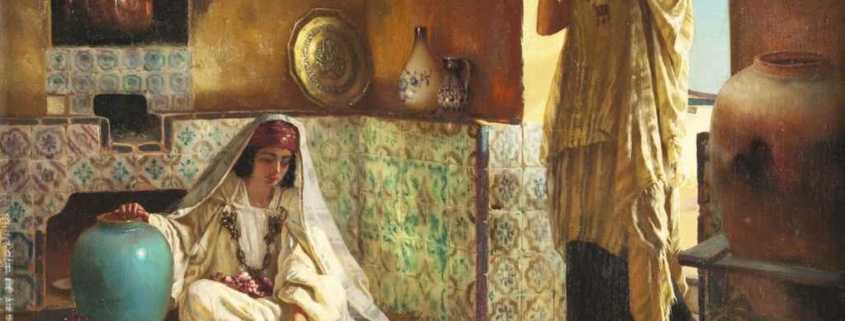



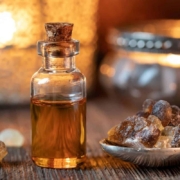
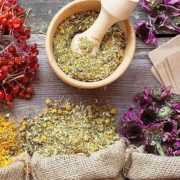
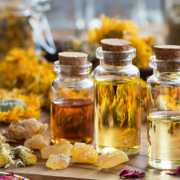
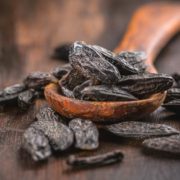
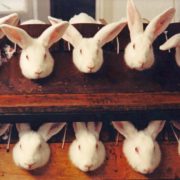
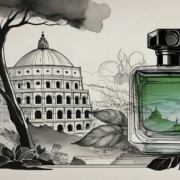














I really love and prefer the cool essence as vetiver , especially jasmine sambac and mughet, even in winter! don’t like warm perfumes.